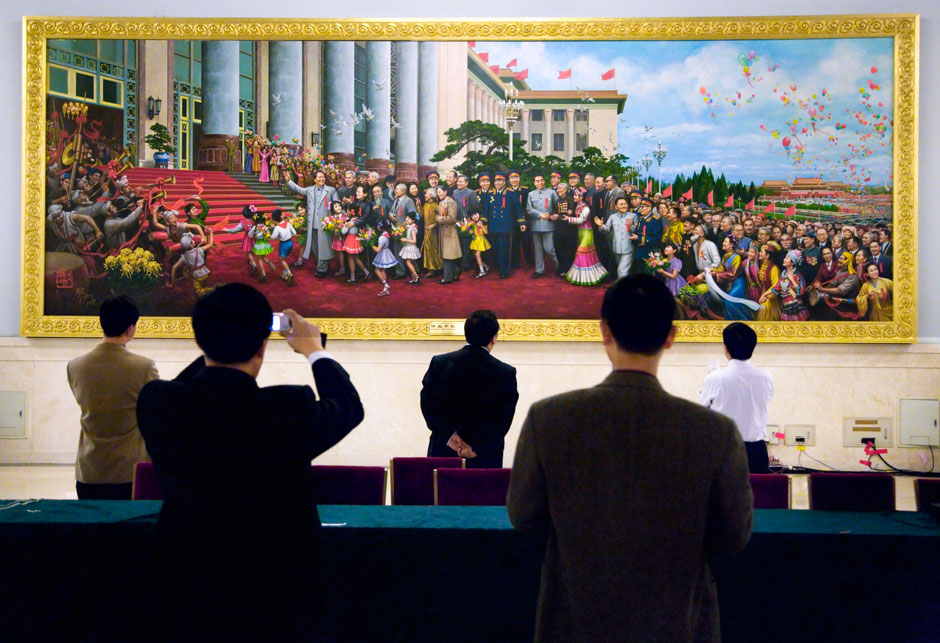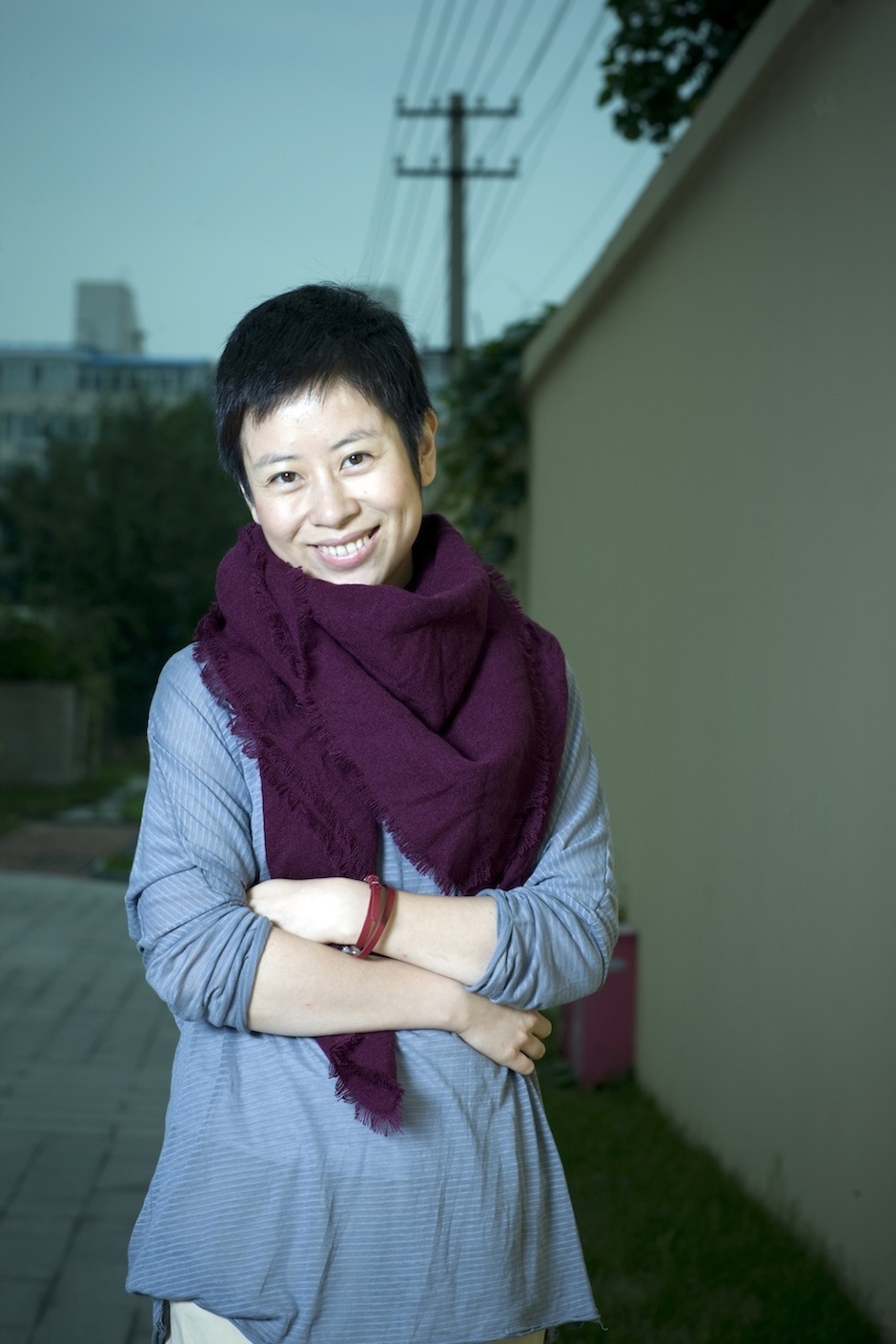Liu Yu is one of China’s best-known America-watchers. A professor of political science at Tsinghua University, she lived in the US from 2000 to 2007 and now researches democratization in developing countries, including her own. The thirty-eight-year-old became famous in China in 2009 with the publication (in Chinese) of Details of Democracy, a collection of her blogs that described how politics works in America. The book earned her the moniker among online fans as “China’s de Toqueville” (she’s quick to reject that as too flattering). She is a popular public speaker, although she has received fewer invitations to speak in recent months, which she attributes to growing pressure in China to silence critical voices. I spoke to her recently in Beijing.
Ian Johnson: What inspired you to start blogging about American politics?
Liu Yu: A lot of people in China are very cynical about “capitalist democracy.” When there was campaign finance reform on soft money in the US, I had to explain that capitalists such as Bill Gates can’t just wire as much money as they want to a politician and then demand that the politician pass bills supporting their companies. My basic approach was to introduce democracy to my readers—how bills are passed, how society is organized—through stories and issues rather than through abstract jargon. For example, there was a big subway workers’ strike in New York City. I wrote how it happened, how different parties negotiated and compromised, how all parties including the authorities had to act within the law and the strike could not be just “put down” [as it would be in China] by policemen in the name of “maintaining stability.”
So you set out to explain American democracy.
No. My book is about American democracy, but it’s really about democracy in general. I happened to be in America when I was writing it.
It’s interesting because when you were there, the US was involved in the “war on terror,” civil liberties were being curtailed, terrorism suspects were being tortured. But you found good things to write about.
I think you Americans, your political agenda has become taken over by these differences between the Republicans and the Democrats. Every day, you fight about issues like taxation or abortion. But perhaps you have forgotten that the things the Republicans and Democrats share are much larger than what separates them. You already take certain principles for granted, like freedom of speech, like independence of judiciary. Because more than two hundred ago you settled some of these fundamental issues, such as checks and balances, human rights, small government. You’ve already had these things for so long, you take them as a given. But it’s not a given in China.
It seems like Chinese readers were receptive to this optimism about the US. When you published your book, Details of Democracy, in 2009 it became a best seller, selling over 400,000 legal copies.
It had to do with a change in political culture. Starting in the middle of the 1990s, with the publication of China Can Say No, most Chinese books about the United States were negative. A lot of Chinese say Americans like to demonize China when in fact there is much greater Chinese demonization of the United States. But beginning in about 2008, opinion was shifting away from nationalism to a more liberal outlook—in the classic sense of liberalism, of valuing freedom and equality. Or at least it was among a group of people. I don’t mean all intellectual classes, but there was a significant group. So I think my book’s popularity was because people were ready to hear something other than the usual negative propaganda about America.
How did this openness come about?
I think it was related to the Internet. Of course you can’t say that before the Internet there were no liberal people in China. But they had no platform. There was no place they could speak out. It was hard for them to meet. The Internet provided this. Also, until about 2010, the government wasn’t fully aware of how “dangerous” the Internet is. The authorities weren’t as skilled as today in limiting it. So relatively speaking liberal voices were on the rise.
That trend seems to contrast with what many people see in China today. What happened?
Liberals have been in many ways stifled by effective government censorship. Because of this increasingly powerful and omnipresent machine, they can now only find limited space to spread and grow. But I don’t think the “Internet Spring” is a failure. There is a difference between liberal voices not existing at all and liberal voices having little space to express themselves. These voices in China are just laying dormant now. But you cannot send a baby already born back to its mother’s womb. The “Internet Spring” allowed a significant group of people to connect with each other, and the effect of those connections has set to be seen. Voices can be temporarily put down, but people are what matter in the long run.
Advertisement
When I interviewed Ran Yunfei , he argued that intellectuals in China are irresponsible and don’t yet know how to conduct political debates.
I sort of agree with Ran. I think it’s partly because the government has a monopoly on traditional forms of media. So public debate has only taken place online. But online debates have different characteristics than, say, newspapers or magazines. One is that you can publish much more easily anonymously. You can be very irresponsible because of the anonymity. Also, online comments can attract a lot of people very quickly. And it can be hard to back down because of this “crowd effect.” Also, things happen so fast. Someone curses you and you might suddenly curse them. Normally you don’t curse but suddenly you are.
People have to learn these things through watching and experiencing public debate. In England there’s a TV show called Question Time. On each show there’s a central topic and five people discuss it. You’ll have members of various parties, like Liberal Democrat, Conservative, Labor, an independent, and maybe another person. Each person has a certain amount of time to talk and so on. If you could turn on the TV and see shows like that, you’d learn how to debate. But Chinese have never seen national politicians debate.
Are Chinese beginning to learn such things from other countries?
Yes, more and more people really pay attention to what’s happening in, say, Burma, or Russia, or Egypt. But a lot of people also think China is really great—so great that “we don’t need to understand the outside world.” In school I can sense it. Many students’ English isn’t better than when I went to college. I went to university more than twenty years ago. I came from a small town and our English was terrible. A lot of these children grew up watching US shows like Friends or House of Cards. But you’ll notice that they don’t really have much curiosity about the world.
I think this is just a symptom of a general problem, which is suffocation of public thinking. It is not just the “outside” world people are uncurious about. Many Chinese are indifferent to the “inside” world as well. I mean, the domestic affairs in China. Thanks to the systematic de-politicizing efforts of the government, most people are only interested in personal development. You may pay a big price if you step out of that line of private life.
Since you left, the problems in the United States might seem to have gotten worse, with rising inequality and the wars that continue to drag on. Do you think this is a reason for the triumphalism in China?
Yes, it is also related to the notion that “China is rising, the West is in decline.” In the West, such self-critical voices are everywhere, and many Chinese take it literally, thinking, “We now represent the future,” without realizing that such pessimism in the West is in a way a signaling system for them to improve their institutions and policies. I lived in the West for many years, and I know that people are complaining how terrible things are. Are things really that bad there? No. But are such complaints wrong? No, because the improvement of the system depends on such complaints.
Despite the current chill in China, are you hopeful that people are becoming more informed about democracy and why it is important?
I know quite a few intellectuals who are interested in democracy; most of them just do not or dare not speak out because of the political atmosphere here. But a lot of intellectuals do not really seek alternative information. What’s more important, their ideology is shaped by propaganda earlier in their lives that can program them into selective absorption of information even when they do come across different information. The de-programming might take a couple of generations.




